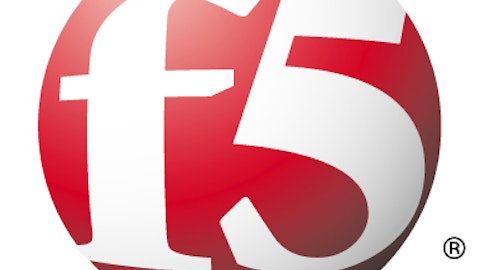It has been a somewhat perplexing reporting season for many companies in cyclical industries. I’ve detected a recurring trend with a number of technology and industrial companies. Simply put, Q4 of last year ended quite strongly, and encouraged a sense of optimism that many companies haven’t lived up to in 2013. The result is that many warned and lowered guidance.
Is now the time to take advantage of lowered expectations and cheaper share prices? I want to look at three factors that might help you make your mind up.

Following the earnings misses at tech bellwethers like International Business Machines Corp. (NYSE:IBM) and Oracle Corporation (NASDAQ:ORCL) investors in staffing companies must have been fearing the worst over prospects for their tech operations in their upcoming results. However, the reality turned out much better than most could have predicted.
is a staffing company that generates the majority of its revenues from the IT sector. It reported a strong start to the year and guided towards the high end of its previous full year forecast. Its IT end markets were cited as being particularly strong- with the largest growth coming from healthcare, telecoms & media. Overall revenue was up 13.6% and the stock rose double digits in response. Moreover, the outlook for its tech sector was flat for Q2 vs. Q1; in other words it is not reporting any sequential slowdown, and strong demand will continue.
In addition, Robert Half International Inc. (NYSE:RHI) reported good results within technology. Overall its numbers were a bit disappointing, but this is largely due to weaker European results. In comparison the US numbers were in line with expectations, and it declared that this was the first quarter in years in which its tech operations had reported sequential improvement. Investors will hope it can stabilize its European operations.
My view is that the strength that the staffing companies have seen in tech is a consequence of underlying structural strength. Whereas the weakness reported by the software companies is more of a tactical response to fears over sequestration.
If this is a tactical issue –which could be resolved pretty quickly- then business surveys should be showing underlying strength. I find the Duke University Fuqua CFO Business Outlook Survey to be a useful indicator of corporate spending plans.
I’ve broken out the key data that interests us:

It’s clear from the graph that capital and technology spending tends to lag the earnings growth outlook. This is also intuitively true because if revenues are rising then the spending needed to service it should grow too. Note also that employment plans appear to be improving this year.
It sounds good, but we still need to reconcile this sort of survey data with the reality that tech spending was weak in Q1. My view is that, again, this is due to some sensitivity over short term events rather than an underlying malaise.
If this argument holds, then we should have seen elements of it previously. Political and economic uncertainties have been with us for a while, and they are not going away anytime soon. In a sense I think businesses have become hyper-sensitive to them. As I’ve articulated in an article here, corporations and individuals have cleaned up their balance sheets and debt situations. It’s now time for the government to do so.
The current worries are over the effects of the sequester On Assignment, Inc. (NYSE:ASGN) the economy and they were around last year too. They hit their zenith in Q3 over ‘fiscal cliff’ worries. I would argue that this is why we saw such a relatively strong Q4 in technology.
